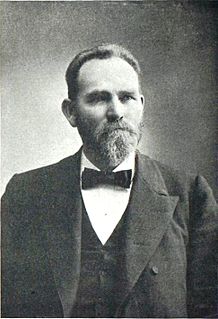A Quote by Benedict of Nursia
Idleness is the enemy of the soul; and therefore the brethren ought to be employed in manual labor at certain times, at others, in devout reading.
Related Quotes
There is the work of great men and there is the work of little men. Therefore it is said, 'Some labor with their minds and some labor with their strength. Those who labor with their minds govern others; those who labor with their strength are governed by others.'1 Those who are governed by others support them; those who govern them are supported by them. This is a universal principle.
The prosperity of a people is proportionate to the number of hands and minds usefully employed. To the community, sedition is a fever, corruption is a gangrene, and idleness is an atrophy. Whatever body or society wastes more than it acquires, must gradually decay, and every being that continues to be fed, and eases to labor, takes away something from the public stock.







































